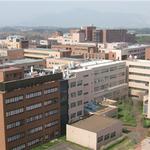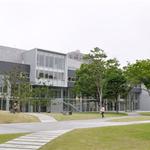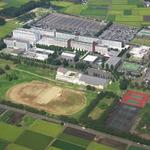Introduction to the International University of Health and Welfare (IUHW)
Overview
The International University of Health and Welfare is a private university located in Japan. It was established in 1995 and is the first comprehensive university in Japan specializing in medical and welfare education. The school has multiple campuses located in Chiba Prefecture, Tokyo, Tochigi Prefecture and Shizuoka Prefecture. The International University of Health and Welfare is committed to cultivating professionals in the medical and welfare fields with professional knowledge and practical ability, and contributing to the development of society.
Campus
The International University of Health and Welfare has multiple campuses, the specific addresses are as follows:
Narita Campus (Narita City, Chiba Prefecture): Mainly has the Department of Medicine.
Akasaka Campus (Minato-ku, Tokyo): Mainly has the Graduate School and other departments.
Omiya Campus (Saitama City, Saitama Prefecture): Mainly has the Department of Health and Medicine, the Department of Nursing, etc.
Tochigi University of Medicine and Welfare (Utsunomiya, Tochigi): Mainly consists of the Department of Pharmacy, Department of Physical Therapy, etc.
Shizuoka University of Medicine and Welfare (Shizuoka, Shizuoka): Mainly consists of the Department of Health and Medicine, Department of Nursing, etc.
Educational Philosophy
The International University of Medicine and Welfare adheres to the educational philosophy of "realizing a society of coexistence" and emphasizes the cultivation of students' professional qualities and humanistic care. The school is committed to cultivating high-quality talents with professional knowledge and practical ability through a comprehensive education system to contribute to the development of society.
Disciplines and Majors
The International University of Medicine and Welfare has multiple faculties and graduate schools covering a wide range of fields:
Department of Medicine
Department of Medicine: Learn the basic theories and practical methods of medicine and cultivate doctors who can work in medical institutions.
Department of Health and Medical Sciences
Nursing: Learn the basic theories and practical methods of nursing and train nurses who can work in medical institutions.
Rehabilitation: Learn the basic theories and practical methods of rehabilitation therapy and train rehabilitation therapists who can work in rehabilitation institutions.
Radiotherapy: Learn the basic theories and practical methods of radiotherapy and train radiographers who can work in medical institutions.
Clinical Examination: Learn the basic theories and practical methods of clinical testing and train clinical laboratory technicians who can work in medical institutions.
Department of Pharmacy
Pharmacy: Learn the basic theories and practical methods of pharmacy and train pharmacists who can work in pharmacies, pharmaceutical companies and other fields.
Department of Social Welfare
Social Welfare: Learn the basic theories and practical methods of social welfare and train social workers who can work in social welfare institutions.
Graduate School
Graduate School of Medicine
Department of Medicine: Master's and Doctoral Courses
Graduate School of Health and Medical Sciences
Department of Nursing: Master's and Doctoral Courses
Department of Rehabilitation: Master's Course
Department of Radiological Technology: Master's Course
Department of Clinical Investigation: Master's Course
Graduate School of Pharmacy
Department of Pharmacy: Master's and Doctoral Courses
Graduate School of Social Welfare
Department of Social Welfare: Master's and Doctoral Courses
Specialized Courses
Department of Medicine: Study the basic theories and practical methods of medicine, including basic medicine, clinical medicine, public health, etc.
Department of Nursing: Study the basic theories and practical methods of nursing, including basic nursing, clinical nursing, nursing management, etc.
Department of Rehabilitation: Study the basic theories and practical methods of rehabilitation treatment, including physical therapy, occupational therapy, speech therapy, etc.
Radiation Technology: Learn the basic theories and practical methods of radiation technology, including radiation physics, radiation diagnosis, radiation therapy, etc.
Clinical Inspection: Learn the basic theories and practical methods of clinical testing, including hematology, biochemistry, microbiology, etc.
Pharmacy: Learn the basic theories and practical methods of pharmacy, including medicinal chemistry, pharmacology, pharmacy, etc.
Social Welfare: Learn the basic theories and practical methods of social welfare, including social work, social policy, social administration, etc.
Practical Teaching
International University of Medical Welfare attaches great importance to practical teaching, with advanced laboratories and practice bases, providing students with rich practical teaching resources. The school has established cooperative relations with many medical institutions and social welfare institutions, providing students with rich internship and practice opportunities. The school also has practical platforms such as simulated hospitals, laboratories, and nursing training rooms, providing students with a platform for practical operation.
International Exchange
International University of Medical Welfare actively participates in international exchange projects, has established cooperative relations with universities in many countries, and provides students with opportunities for overseas study and exchange. The school has an international student office to provide comprehensive support and services for international students.
Ranking
The International University of Health and Welfare has a high reputation in the field of medicine and welfare, especially in medicine, nursing, rehabilitation, pharmacy, social welfare and other professional directions. The school has performed well in terms of employment rate and has been rated as one of the universities with higher employment rates among private universities in Japan many times.
Expenses
Admission fee: about 200,000 yen
Tuition:
About 800,000 to 1 million yen per year (depending on different departments and subjects)
The specific fees may vary. It is recommended to consult the school directly for the latest information.
Campus
The campus of the International University of Health and Welfare has a beautiful environment and complete facilities, including modern teaching buildings, laboratories, libraries and sports facilities. The school also has student dormitories to provide convenient living conditions for out-of-town students.
Contact Information
Tel: +81-476-36-1111 (Narita Campus)
Fax: +81-476-36-1112 (Narita Campus)
Email: info@iuhw.ac.jp
Other Information
Internship Opportunities: The school has established cooperative relationships with many medical institutions and social welfare institutions, providing students with abundant internship and practice opportunities.
Employment Support: The school has a career guidance center to provide students with employment consultation, resume writing guidance, interview skills training and other services to help students find employment smoothly.
Scholarship System: The school has a variety of scholarship systems to help students reduce their financial burden.
-

The University of Tokyo
-

Kyoto University
-

Osaka University
-

Waseda University
-

Hitotsubashi University
-

Nagoya University
-

Tokyo Institute of Technology
-

University of Tsukuba
-

Keio University
-

Tohoku University
-

Mesoamerican University
-

Istmo University
-

Mariano Galvez University of Guatemala
-

Regional University of Guatemala
-

Galileo University
-

Francisco Marroquín University
-

Rafael Landívar University
-

University of the Valley of Guatemala
-

University of San Carlos of Guatemala
-

Technological Institute of Tlaxcala Plateau
-

Golfo University
-

Technological University of South Sonora
-

Technological University of Huejotzingo
-

Tizimín Institute of Technology
-

Chilpancingo Institute of Technology

